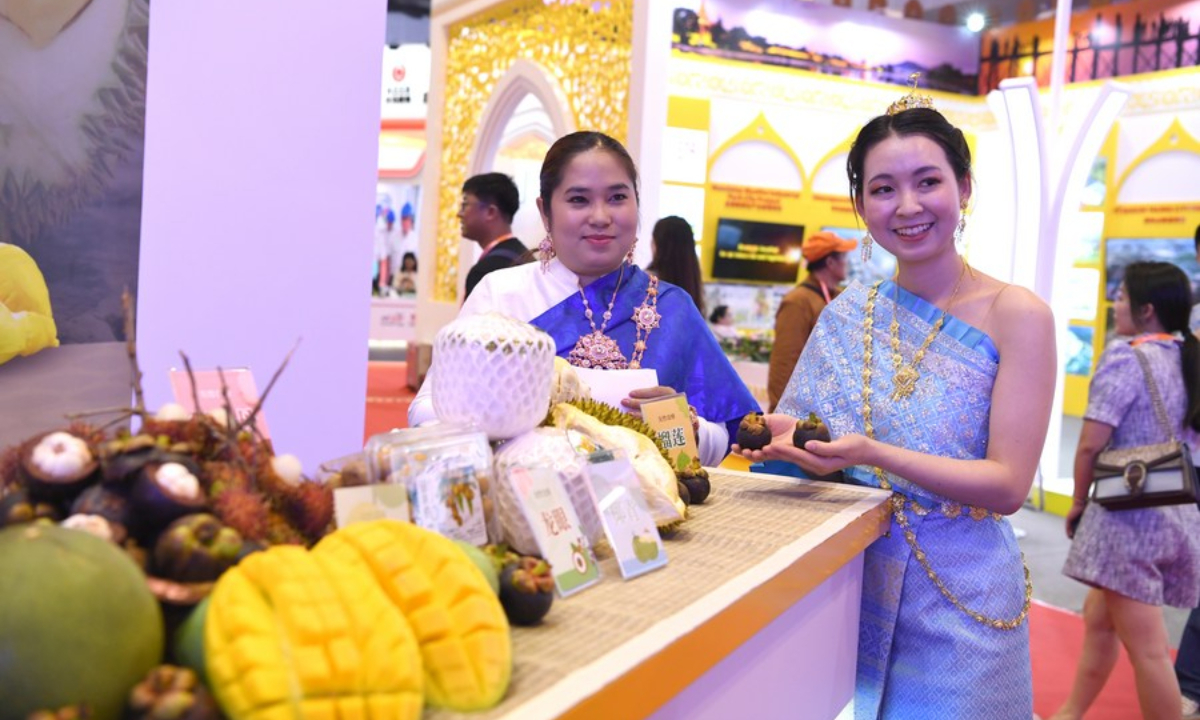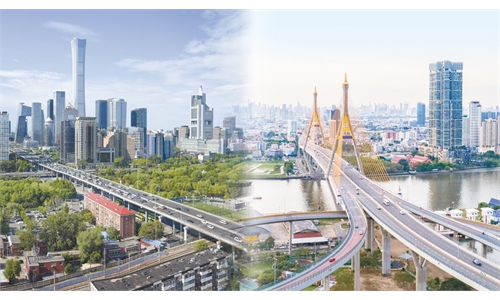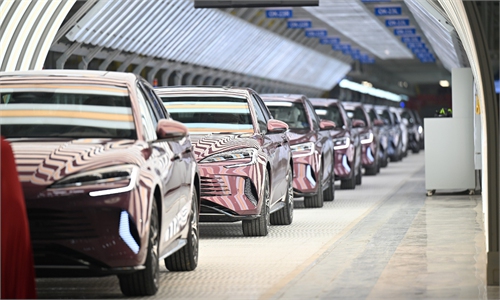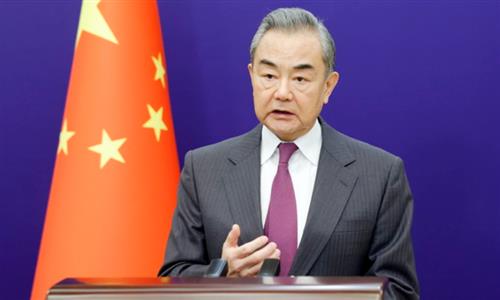
Exhibitors display fruits from Thailand during the 20th China-ASEAN Expo at Nanning International Convention and Exhibition Center in Nanning, capital of south China's Guangxi Zhuang Autonomous Region, Sep 17, 2023. Photo:Xinhua
The Chinese Embassy in Thailand on Wednesday addressed concerns regarding the trade imbalance between China and Thailand, emphasizing that the trade relationship is market-driven and influenced by supply and demand. The embassy clarified that China does not aim to build a trade surplus with Thailand. Instead, it has consistently provided support and convenience for Thailand's exports to China.
China and Thailand enjoy a complementary trade structure that is mutually beneficial. The embassy pointed out that prior to 2019, Thailand maintained a trade surplus with China. Starting from 2020, the trend shifted to a surplus for China, reflecting natural adjustments in market conditions.
The embassy stressed that trade surpluses or deficits should not be seen as winning or losing in the international market, but should be evaluated based on whether they align with the needs of each country.
The statement came in response to inquiries from multiple Thai media outlets about the economic relationship between China and Thailand, including questions about China's economic policies, the trade imbalance, the role of Chinese businesses in Thailand, and cross-border e-commerce.
Approximately 80 percent of China's exports to Thailand consist of capital and intermediate goods that are necessary for Thailand's local manufacturing and exports. The embassy noted that much attention has been drawn to inexpensive Chinese goods, such as consumer products, food, and clothing, but these account for less than 10 percent of China's total exports to Thailand.
"The Chinese government has consistently asked Chinese enterprises and citizens to operate in accordance with laws and regulations in their economic activities, and we support the Thai government in strengthening supervision and correcting and eliminating irregularities in accordance with the law," the embassy stated.
The embassy underscored the strong economic ties between the two nations, noting that China remains Thailand's largest trading partner and its main market for agricultural exports.
Last year, over 40 percent of Thailand's agricultural exports went to China, with durian exports alone reaching $4.57 billion, according to the embassy.
China is also a key source of foreign investment in Thailand. There are over 1,000 Chinese companies operating in Thailand, and in the past two years, Chinese businesses have launched 588 investment projects worth nearly $7 billion, focusing on sectors such as electric vehicles, the digital economy, renewable energy, and modern manufacturing, all of which align with Thailand's development strategies, said the embassy.
China continues to be the largest source of foreign tourists for Thailand; 11 million Chinese tourists visited Thailand in 2019. This year, Thai authorities expect to receive around 8 million Chinese tourists, contributing over 350 billion baht ($10.2 billion) in tourism revenue, the embassy stated.
According to the General Administration of Customs, trade between China and Thailand has continued to grow. From January to July this year, bilateral trade reached 539.8 billion yuan ($75.8 billion), an increase of 5.6 percent compared to the same period last year.




